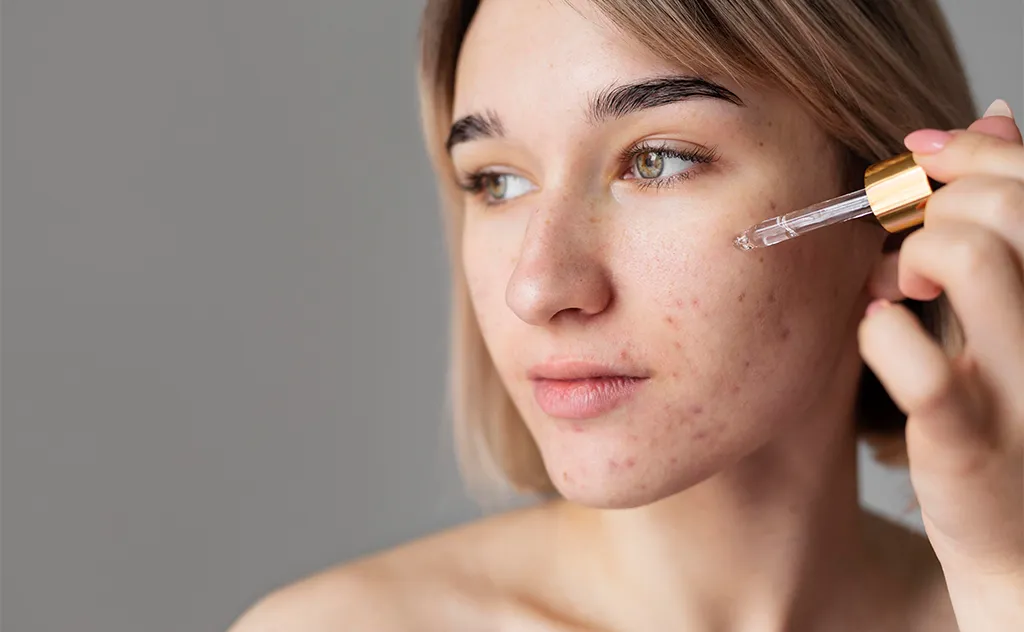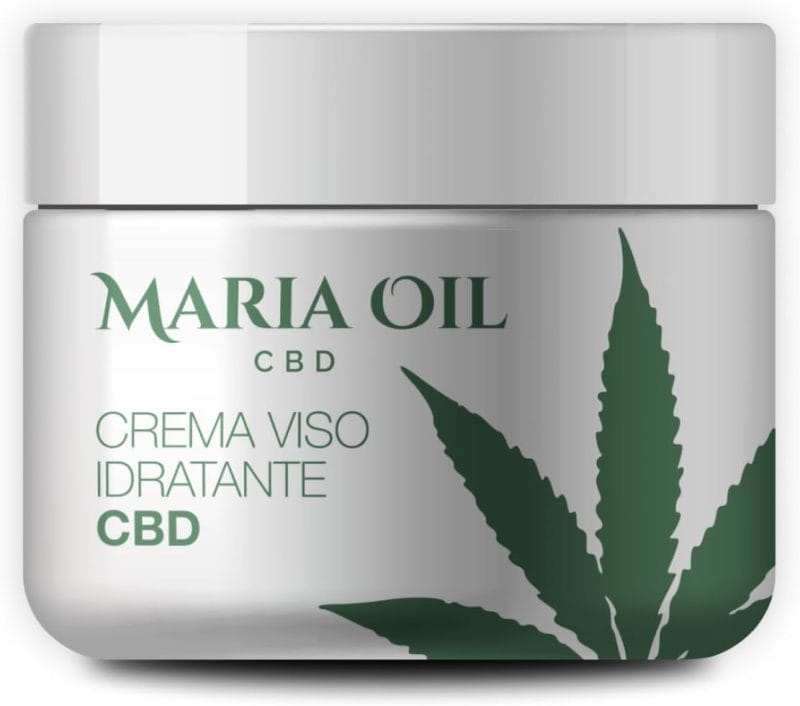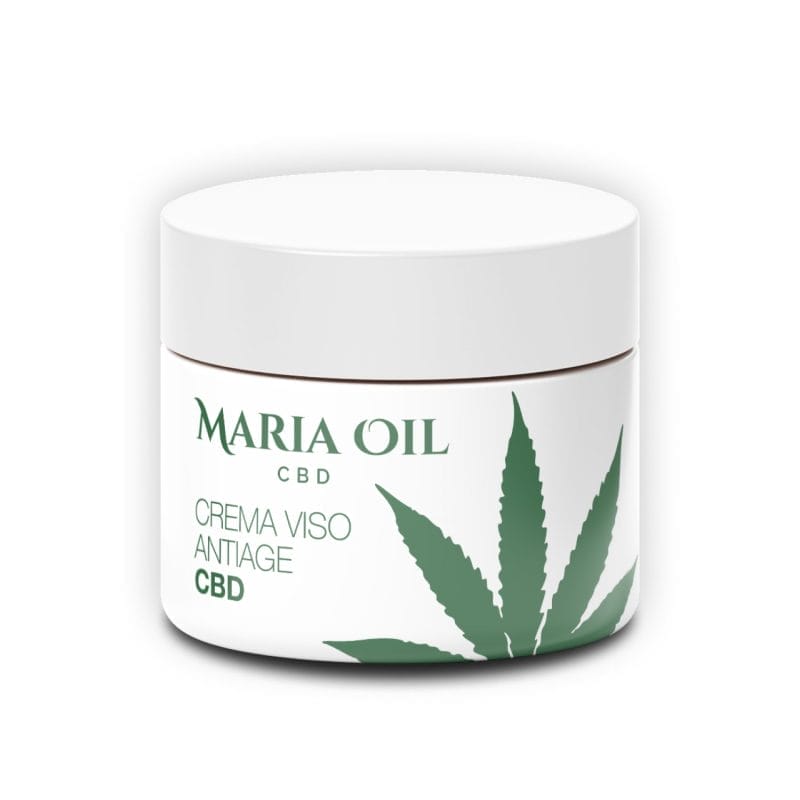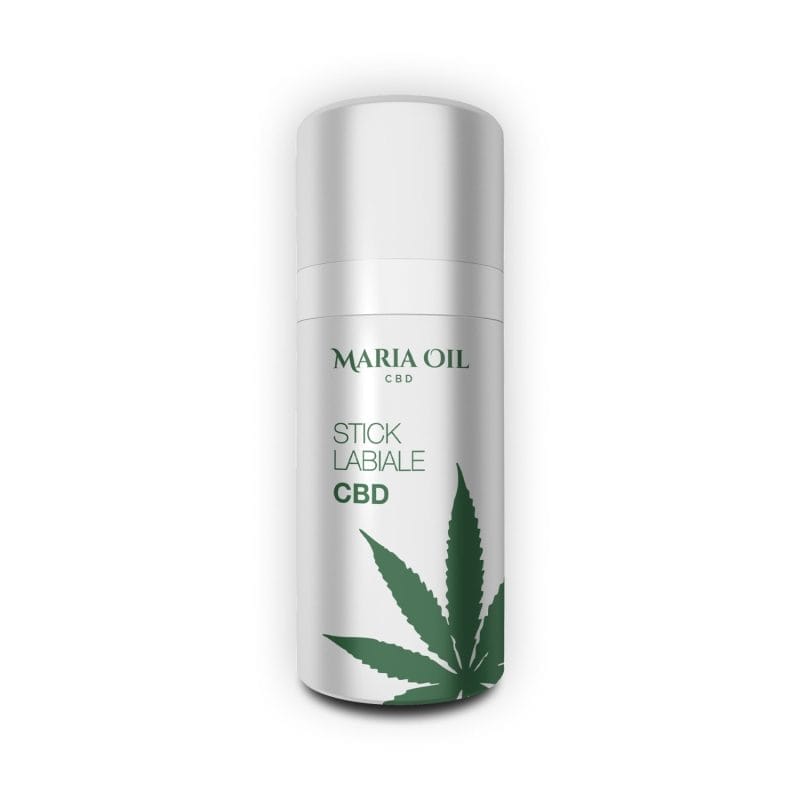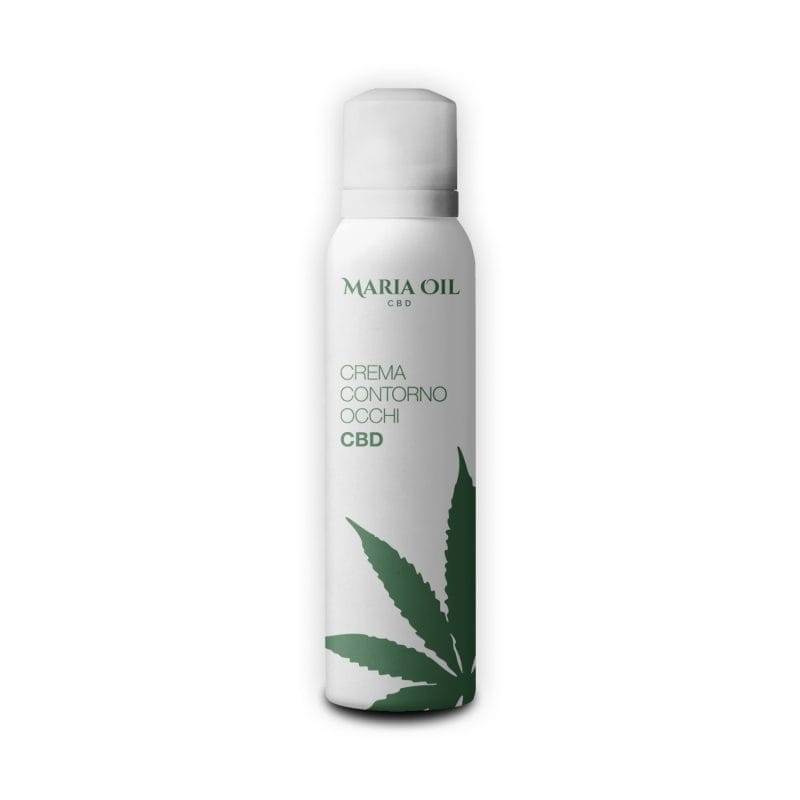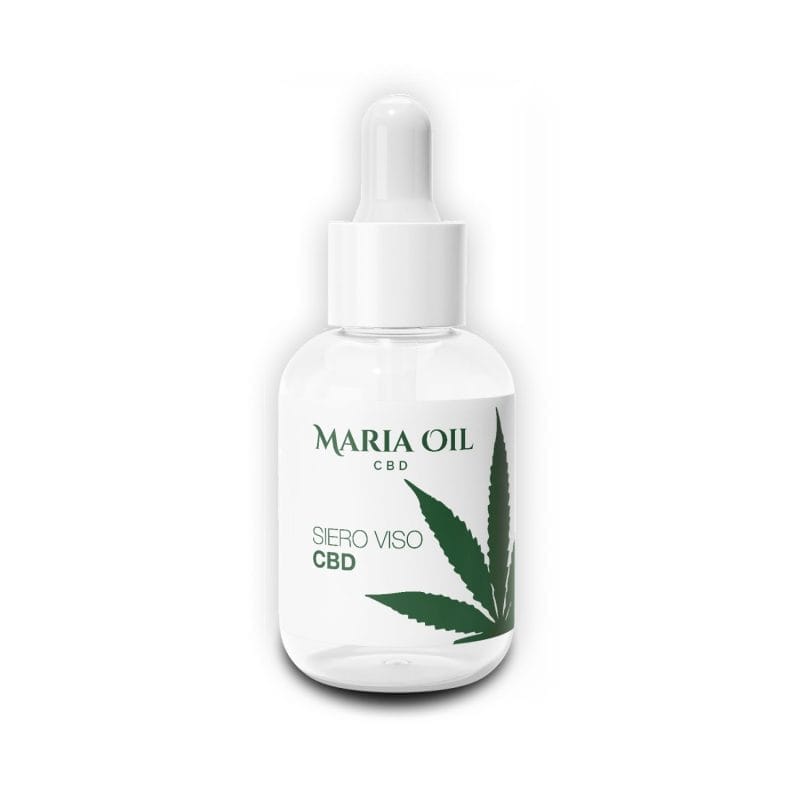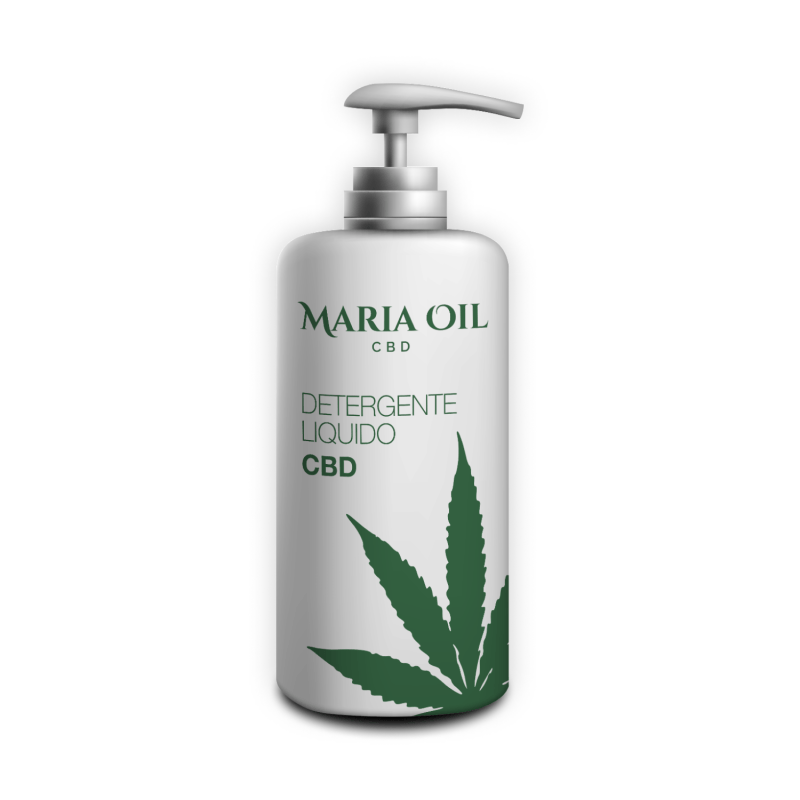Have you been suffering from acne for a long time, perhaps years, and can’t wait to find a definitive remedy? Acne is a heavy disease to bear not only physically but also psychologically. Those who suffer from it feel uncomfortable being around others and this affects their quality of life considerably.
They may have given you some medication to try, some you may have already taken, but very often acne medication proves to be even more burdensome than the problem it is intended to solve. At this point you just want to treat your acne naturally.
It is fortunate that you have come to feel this desire because nature contains everything that man needs to be well. If you can find the right natural remedy, you can be sure of its effectiveness, because nature does not make mistakes.Let’s find out together how to treat acne naturally so that you can get back to enjoying life.
-
Product on saleMoisturizing Face Cream with CBDOriginal price was: £27.00.£18.90Current price is: £18.90.
-
Product on saleCBD face cream AntiagingOriginal price was: £31.00.£21.70Current price is: £21.70.
-
Product on saleHemp ChapstickOriginal price was: £6.99.£4.89Current price is: £4.89.
-
Product on saleCBD Eye Contour CreamOriginal price was: £11.00.£7.70Current price is: £7.70.
-
Product on saleCBD Face SerumOriginal price was: £31.00.£21.70Current price is: £21.70.
-
Product on saleCBD face and neck cleanserOriginal price was: £24.00.£16.80Current price is: £16.80.
What is acne?
Acne is a very common skin condition characterised by the formation of pimples, blackheads and pustules on the skin.
Why does acne appear at some point? Because the skin’s hair follicles become clogged with sebum produced by the skin, dead cells and bacteria.
The peak time for acne is usually adolescence but, as we shall see in a moment, it is not a problem exclusively related to the age of development.
Another important thing to know is that there are several manifestations of acne, including:
- Blackheads (open comedones): small holes in the skin with a dark colour due to oxidation of the sebum;
- White pimples (closed comedones): small white protuberances on the skin caused by clogged hair follicles;
- Pustules: inflamed spots with pus inside them, it is an already more severe form than the previous ones;
- Nodules and cysts: deeper and more painful formations under the skin, which can lead to scarring, is the most severe phase of the disease.
This happens because, usually, hormones stimulate an excessive production of sebum compared to normal and the skin cannot absorb it. The excess oil settles and inflames the skin. Let us now look specifically at what causes this disorder.
What is it caused by?
The causes of acne are complex and not yet fully understood, although a cure has been sought for a long time.
Although there are different types of acne, which therefore have different triggering factors, the disorder is usually triggered by a concomitance of events:
- Hormones: youth acne is the most common and well-known form, occurring when levels of sex hormones, such as testosterone, are high and stimulate the sebaceous glands to produce more sebum;
- Sebum: excessive sebum production can clog hair follicles and create a favourable environment for the growth of bacteria;
- Bacteria: the bacterium Cutibacterium acnes (or Propionibacterium acnes) is present on everyone’s skin, but is more abundant in people with acne; this bacterium contributes to the inflammation of hair follicles;
- Keratinisation: keratin is a protein that forms the outermost layer of the skin; altered keratinisation can lead to the formation of plugs that can obstruct hair follicles.
Other factors that may contribute to acne include:
- Genetic factors: acne has a significant genetic component; if one or both parents have acne, the child has a higher risk of developing the disease;
- Stress: stress can worsen the disorder, although it is hardly the trigger;
- Certain drugs: some drugs, such as corticosteroids, can cause acne;
- Certain medical conditions: certain medical conditions, such as polycystic ovary syndrome (PCOS), may increase the risk.
In recent years, cases of localised acne have also occurred as a result of wearing masks over the nose and mouth.
Is it only young people who are at risk?
To think that only young people suffer from acne is a common misconception. Although acne is more frequent during adolescence due to the hormonal changes associated with puberty, it is not limited exclusively to young people.
Adults may also develop acne or have recurring episodes of acne even after adolescence. In fact, acne in adulthood is a more widespread phenomenon than you might think.
Causes of acne in adulthood may include factors such as hormonal imbalances, stress, use of certain medications, changes in diet, among others. For example, women may experience acne related to the menstrual cycle, pregnancy or menopause due to hormonal fluctuations.
Thus, although acne is more typical during adolescence, it can affect people of all ages. Treatment options can vary depending on the underlying cause and the severity of the symptoms, regardless of the patient’s age. Even to treat acne naturally, there is no age limit, so let’s find out how.
Natural remedies for acne on the face
Some of the remedies for acne on the face are already part of your daily routine and you may never have realised it.
You don’t believe? Let’s give it a try.
Below is a set of natural acne remedies that combine powerful active ingredients with easy availability. They will allow you to start treating this annoying ailment today.
Let’s find out how to get rid of acne without side effects.
CBD cosmetics
Cannabidiol, better known commercially and on the web as CBD, is a natural component of the cannabis plant. Studies to date suggest that it may have properties suitable for treating acne disorder.
Some potential benefits of CBD cosmetics include:
- Anti-inflammatory properties: helps reduce the inflammation associated with acne, helping to calm the skin;
- Controlling sebum production: studies suggest that CBD may influence sebum production by the sebaceous glands, helping to prevent clogged pores;
- Antibacterial properties: its action can fight the bacteria involved in the development of acne;
- Skin hydration: CBD is known for its moisturising properties, which are useful for keeping the skin in better condition.
CBD is not a new age remedy; man has been using it for 5,000 years to treat pain, inflammation and many other debilitating conditions. Today it is rightly achieving great success because it is a single active ingredient with dozens of beneficial properties.
Also enhancing its efficacy are the other nutrients produced by the cannabis plant that are usually retained within the final products.
-
Product on saleMoisturizing Face Cream with CBDOriginal price was: £27.00.£18.90Current price is: £18.90.
-
Product on saleCBD face cream AntiagingOriginal price was: £31.00.£21.70Current price is: £21.70.
-
Product on saleHemp ChapstickOriginal price was: £6.99.£4.89Current price is: £4.89.
-
Product on saleCBD Eye Contour CreamOriginal price was: £11.00.£7.70Current price is: £7.70.
-
Product on saleCBD Face SerumOriginal price was: £31.00.£21.70Current price is: £21.70.
-
Product on saleCBD face and neck cleanserOriginal price was: £24.00.£16.80Current price is: £16.80.
Tea tree oil
Tea tree essential oil (Melaleuca alternifolia) is an oil extracted from the leaves of the tea tree tree, native to Australia. It is known for its antimicrobial, anti-inflammatory and antiseptic properties, making it a popular remedy for a variety of skin disorders, including acne.
How does tea tree essential oil work for acne? It seems to act in several ways:
- Antimicrobial: helps fight bacteria;
- Anti-inflammatory: reduces the redness and irritation associated with acne;
- Antiseptic: prevents and treats skin infections.
How to use tea tree essential oil? You must be careful because it is usually highly concentrated and must always be diluted before applying it to the skin. If you don’t dilute it, you could run into irritation or dermatitis.
Here are some ways to use tea tree essential oil:
- Spot treatment: dilute 1-2 drops of essential oil in 1 teaspoon of carrier oil, such as coconut or jojoba oil, then apply the mixture directly to the pimples with a cotton bud;
- Face wash: add 1-2 drops of essential oil to your usual facial cleanser;
- Face mask: add 1-2 drops of essential oil to a homemade face mask.
To avoid adverse reactions, first do a test on a small portion of skin. If you do not notice any contraindications, proceed with the whole face.
Aloe vera
Aloe vera is a medicinal plant that has been known in the trade for many years for its soothing and moisturising properties. But let’s dig deeper and see why it may be the right way to treat acne naturally.
Its main properties include:
- Anti-inflammatory: flushes redness and reduces pain;
- Antiseptic: helps prevent further infections;
- Soothing: reduces acne-related itching;
- Healing: promotes wound healing to prevent permanent marks.
One very important thing to say about aloe vera is that you should look for concentrated products. Read well on the label the percentage of active ingredient contained in the product. We are telling you this because it is easy to be convinced by nice packaging, but if there is only 5% aloe vera in the product, it is almost useless.
Buy products based on pure aloe vera, possibly not mixed with fragrances or other substances, from serious and reliable manufacturers.
Honey and cinnamon
Remember when we said that you already have the ingredients at home to treat acne naturally? All of us in the kitchen always have honey and cinnamon on hand.
Why should they help you fight acne? Because of their properties:
- Antimicrobial: they fight bacteria;
- Anti-inflammatory: reduces redness and irritation;
- Antioxidants: protect the skin from damage caused by free radicals.
How to use them to treat acne? Here is a recipe for a honey and cinnamon facial mask:
Ingredients:
- 1 teaspoon of honey;
- 1/2 teaspoon cinnamon powder.
Instructions:
- Mix together the honey and cinnamon powder;
- Apply the mixture to a clean, dry face;
- Leave the mask on for 15-20 minutes;
- Rinse the mask with lukewarm water.
It is important to continue to follow good skin hygiene during acne treatment. This includes washing your face twice a day with a mild cleanser and avoiding touching or squeezing pimples.
Apple vinegar
Apple cider vinegar is often cited as a natural remedy for acne, among other things, due to its antibacterial and anti-inflammatory properties and its potential effect on regulating the pH of the skin.
However, it is important to use it very carefully and do a patch test to avoid adverse reactions.
Here’s how you can use apple cider vinegar to treat acne naturally:
- Dilution: apple cider vinegar is very acidic, so it is essential to dilute it before use, mix one part apple cider vinegar with one or two parts water to create a dilute solution;
- Swab or local application: use a cotton ball or swab to gently apply the diluted solution on the area affected by acne, you can do this after washing your face;
- Facial tonic: mix apple cider vinegar with water and use the mixture as a facial tonic, apply with a cotton wool pad and let it dry on the skin;
- Face mask: you can also mix apple cider vinegar with clay or honey to create a face mask, applying the mixture to the skin for 10-15 minutes, then rinsing off.
For results, use apple cider vinegar regularly. However, do not overdo it, as the acid may cause irritation if used in excess.
Change in diet
We are what we eat, so modifying your diet can have an impact on skin health, including acne management. Although effectiveness may vary from person to person, certain dietary adjustments can help improve skin condition.
Here are some dietary recommendations for treating acne naturally:
- Consume foods rich in antioxidants: antioxidants help fight oxidative stress and inflammation in the body. Eat colourful fruits and vegetables such as berries, cherries, spinach and carrots;
- Omega-3 fatty acids: foods rich in omega-3, such as oily fish (salmon, mackerel), flaxseed and walnuts, can help alleviate inflammation and promote healthy skin;
- Limit intake of sugars and foods with a high glycaemic index: some studies suggest that a diet with a high glycaemic index and rich in sugars may be associated with an increase in acne. Reduce your consumption of sweets, fried foods and baked goods;
- Limit dairy products: studies indicate that dairy consumption may be linked to acne in some people. Try limiting your intake or eliminating them temporarily and see if this affects your skin;
- Increase fibre intake: fibre-rich foods such as fruit, vegetables, legumes and whole grains can help regulate the digestive system and reduce inflammation in the body;
- Drink plenty of water: it helps eliminate toxins from the body and keep the skin hydrated;
- Food supplements: in some cases it may be useful to supplement the diet with specific vitamins and minerals, such as vitamin A, zinc and vitamin E.
Remember that the key is to maintain a balanced approach and to adapt your diet according to your individual needs. If you want to make sure you don’t make a mistake, consult your doctor or a nutritionist.
Care for your skin with a healthy lifestyle
Adopting balanced eating habits, maintaining proper daily hygiene and experimenting with natural remedies can make all the difference in managing acne and maintaining a glowing skin. Remember that each person is unique, so it may take some patience to find the approach that best suits your needs.
If you are interested in further exploring the benefits of natural skin care, we invite you to take a look at the range of CBD cosmetics available in the Maria CBD Oil shop.CBD has powerful soothing and anti-inflammatory properties, which can help maintain healthy and balanced skin. Visit our online shop to discover high-quality products that can integrate harmoniously into your natural beauty routine.
 Contact us
Contact us 
